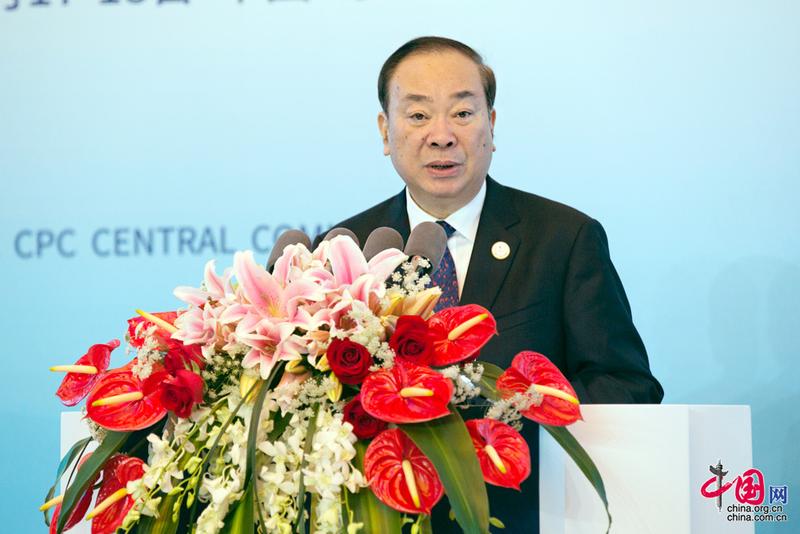



Huang Kunming, deputy head of the Publicity Department of the CPC Central Committee and head of the General Office of the Central Commission for Guiding Cultural and Ethnical Progress, stressed the importance of enhancing exchanges on governance experience and ensuring consensus among leaders of the BRICS nations.

Huang Kunming, deputy head of the Publicity Department of the CPC Central Committee and head of the General Office of the Central Commission for Guiding Cultural and Ethnical Progress, speaks at the opening ceremony of the BRICS Seminar on Governance in Quanzhou, Fujian Province, on Aug. 17, 2017. [Photo by Dong Ning/China.org.cn]
Chinese President Xi Jinping attaches much importance to this, and has repeatedly emphasized the importance of mutual understanding and learning. In regard to enhancing exchanges on governance experience, Huang made the following three suggestions:
Firstly, to build a mechanism for exchanges and mutual learning. Discussion and exchanges on governance experience should be included in the general framework of any cooperative mechanism among the BRICS nations. A platform should be established for dialogue and exchanges on the basis of mutual respect, seeking common ground and reserving differences, learning from each other, exploring effective ways to solve development-related problems, so as to turn exchanges on governance experience into an accelerated driving force in BRICS development and cooperation.
Secondly, to become more efficiently involved in exchanges and mutual learning. The main channel should be discussions and exchanges among high-end think tanks. We also need to encourge more parties, enterprises, media and social organizations to get involved, boost cultural exchanges among the BRICS nations, provide intellectual support for BRICS cooperation and development, and lay the foundation for greater public awareness.
Thirdly, the need to involve more friends in exchanges and mutual learning. Every achievement and experience made by the BRICS nations, all of whom are emerging market economies and developing countries, should be highly valued. Many think tank scholars and entrepreneurs from emerging market economies and developing countries have been invited to the seminar. More friends from other countries are welcome to participate in the exchange of governance experience, hence enlarging the circle of friends.
